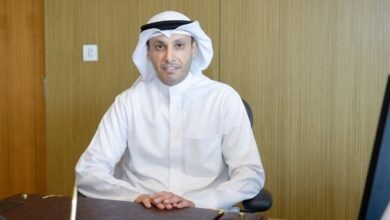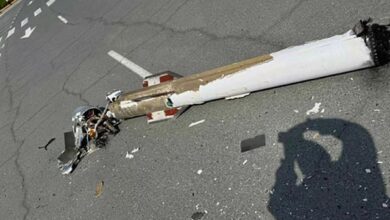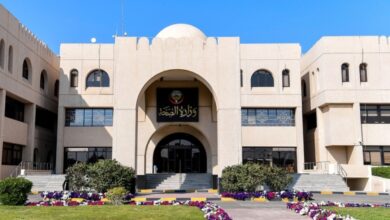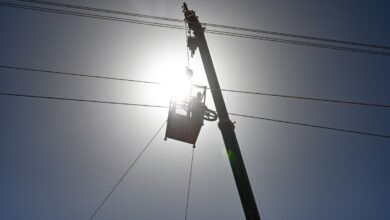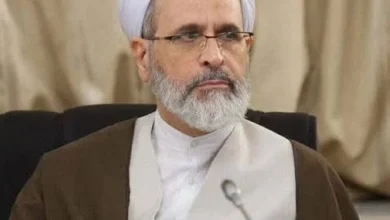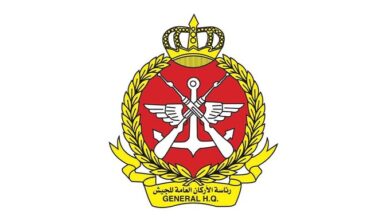ADF 2025: Solving world’s problems through diplomacy
The forum emphasized diplomacy as a tool for peace and reconciliation in a fragmented world

By Reaven D’Souza
Executive Managing Editor
Growing geopolitical rifts, widening inequalities, increasing disruptions from technological advances, intensifying climate change, and heightening instability and unpredictability in the global order are only some of the many factors that highlight the inability of international systems to find appropriate solutions to contemporary issues and effectively address global challenges.
It is against this scenario of heightened instability and unpredictability marked by complex challenges and multiple crises that the Antalya Diplomacy Forum (ADF2025) was held in the southern Turkish resort city of Antalya from 11–13 April.
The forum evaluated the systemic problems of the multilateral order and called for fostering dialogue on reclaiming the role of diplomacy in tackling threats to the global order.
The highly impactful gathering was patronized and inaugurated by Turkish President Recep Tayyip Erdogan drawing more than 6,000 attendees from 155 countries with the participation of nearly 20 heads of state and governments, around 70 foreign ministers, as well as policymakers, diplomats, and high-level representatives of more than 60 international and regional organizations.
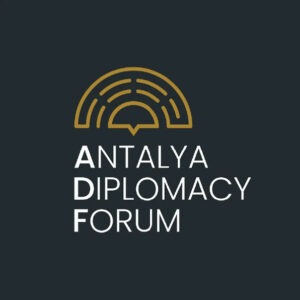 Held under the banner of ‘Inclusive Diplomacy in a Fragmented World’, the Forum emphasised the need for multilateral approaches, diplomacy, dialogue, and bolstering international institutions, to address geopolitical, economic, security and other global concerns. Amid ongoing recalibration of the global order, ADF2025 provided participants with a platform to discuss ideas and exchange views on strengthening the role of diplomacy in diffusing turmoils and confronting issues.
Held under the banner of ‘Inclusive Diplomacy in a Fragmented World’, the Forum emphasised the need for multilateral approaches, diplomacy, dialogue, and bolstering international institutions, to address geopolitical, economic, security and other global concerns. Amid ongoing recalibration of the global order, ADF2025 provided participants with a platform to discuss ideas and exchange views on strengthening the role of diplomacy in diffusing turmoils and confronting issues.
Heading Kuwait’s delegation to ADF2025 was the representative of His Highness the Crown Prince Sheikh Sabah Khaled Al-Hamad Al-Sabah, the Minister of Foreign Affairs Abdullah Al-Yahya. Following the foreign minister’s attendance at the Fourth Antalya Diplomatic Forum on 11 April, a statement issued on state media reiterated the urgent need for diplomacy to reassert itself as a stabilizing force amid rising global fragmentation, and highlighted the importance of multilateralism and diplomacy in fostering global cooperation needed to resolve evolving issues of international concernThe Antalya Diplomacy Forum (ADF) 2025 served as a strategic platform for Turkey to advance its ambitions as a revisionist middle power, pursuing influence through non-coercive means across regions of historical and ideological significance.
This event reinforced Ankara’s aspiration to redefine its geopolitical posture through a deliberate blend of diplomacy, civilizational discourse, and ideological soft power.
Additionally, Ankara sought to position itself as an ideational and diplomatic counterweight to Western institutions, while promoting multipolar cooperation frameworks.
The Antalya Diplomacy Forum 2025 featured several bold remarks that underscored shifting global dynamics, and reflected the forum’s theme, ‘Reclaiming Diplomacy in a Fragmented World’. In his opening remarks at the forum, Türkey’s Foreign Minister, Hakan Fidan, emphasized that diplomacy should not be confined to geographical borders, advocating for a justice-driven approach to international relations. His statement reflected Türkey’s ambition to play a central role in shaping a new global order.
Another striking moment was Syria’s participation, with Ahmed al Sharaa, the president of Syria’s Transitional Government, reaffirming Syria’s commitment to diplomacy as the most effective tool for conflict resolution. His presence marked a rare re-emergence of Damascus on the multilateral stage.
Additionally, Russian Foreign Minister Sergey Lavrov addressed the rise of multipolarity, asserting that more nations now seek an equal say in global affairs, challenging traditional Western dominance. His remarks reinforced the idea that the world is moving toward a more decentralized power structure.
On the sidelines of the forum, the Arab League’s ministerial committee on Gaza met with representatives of the Organization of Islamic Cooperation (OIC) and other countries. Speaking at the meeting Secretary-General of the Arab League, Ahmed Aboul Gheit warned of a severe humanitarian crisis in the Gaza Strip and emphasized the need for an immediate ceasefire.
The meeting also addressed steps to promote the two-state solution and support its implementation, particularly in light of a conference in New York next June, co-sponsored by Saudi Arabia and France. The participants appreciated France’s calls for recognizing the Palestinian state, viewing this as a crucial step toward achieving a two-state solution.
The forum hosted around fifty sessions, covering topics such as repercussions of climate change, food security, combating terrorism, enhancing humanitarian aid, and promoting digitalization, as well as realizing the full positive potentials of artificial intelligence. In addition to global issues, the forum also discussed matters of concern to specific geographical areas in the Middle East, Europe, Pacific Ocean, Africa and Latin America.
This year’s iteration of ADF also featured a panel discussion on the Organisation of Turkic States, examining its unique cooperative model and potential for further integration. High-ranking officials from Turkey, Azerbaijan, Kazakhstan, Uzbekistan, Kyrgyzstan, and other member states stressed the vital role of shared culture, common values, and infrastructure in their strategic partnerships. Another key session focused on regional cooperation in the South Caucasus, bringing together foreign ministers from Georgia, Azerbaijan, and Armenia to explore peace-building efforts.
Established in 2020 by the Turkish Foreign Ministry spearheaded by then Turkish Foreign Minister Mevlüt Çavuşoğlu, the first ADF was slated to be held in 2020 but postponed to 2021 due to COVID-19 pandemic. Since 2021, the annual ADF gathering aims to address regional and global issues and to debate and analyze the present and future challenges in line with the concept of networked security. The forum also allows policymakers, diplomats and academics to share ideas and views on diplomacy, policy, and business.
The conference is organized privately and therefore is not an official government event. It is used exclusively for discussion; an authorization for binding intergovernmental decisions does not exist. Furthermore, contrary to usual conventions, there is no common final communiqué. The high-level meeting is also used to discrete background discussions between the participants.
Incapability of existing multilateral institutions to efficiently address global eventualities has not only eroded trust in these entities, but also undermined the role of diplomacy in fostering stability of political, economic, and security systems. It has also strained the multilateral cooperation vital to address the issues and challenges facing the world today.
Amid this growing dysfunction and lack of trust in global institutions, delegates gathered at ADF2025 explored how diplomacy could be bolstered to find common ground for collective action. In a world becoming increasingly fragmented, the forum provided a platform that inspired dialogue on redefining the role, and core principles, of diplomacy in an increasingly polarized environment.
By discussing some of the root causes of various problems, the forum encouraged attending policy- and decision-makers to reconsider how diplomacy can manage these turbulent times and address the current shortcomings in global governance. The Forum examined innovative tools, effective mechanisms, and forward-thinking strategies in conflict resolution, mediation, and regional cooperation to create a more effective, inclusive and coherent international system.
The forum successfully underlined the need to adopt a novel understanding of diplomacy, beyond its essential and traditional framework of dialogue. More than anything else the success of ADF2025 lies in that it provided a forward-thinking platform to foster dialogue and explore joint strategies among participants from around the world, and to make diplomacy the driving force for peace and to foster cooperation worldwide.







